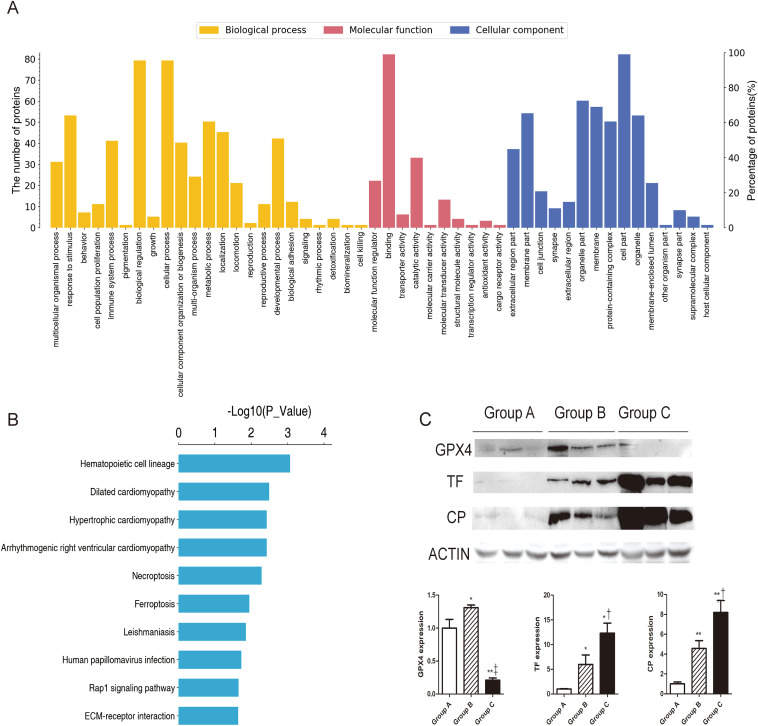
Proteomic analysis of urinary exosomes reveals ferroptosis-associated proteins are involved in diabetic nephropathy


Diabetic nephropathy (DN) is one of the major microvascular complications of diabetes mellitus and a major cause of end-stage renal disease (ESRD). The pathogenesis of DN is unknown, but it is closely related to disorders of glucolipid metabolism, abnormal hemodynamics, chronic inflammatory response, oxidative stress, and genetics. Once DN develops into ESRD, it is often more difficult to treat than ESRD caused by other kidney diseases. Therefore, a deeper knowledge of the pathophysiological mechanisms of DN and the discovery of candidate markers for early diagnosis are mandatory. Exosomes secreted by renal cells can regulate a series of pathophysiological processes such as translation and transcription by releasing miRNAs or proteins, thereby regulating the biological functions and phenotype of recipient kidney cells. It has been found that miRNA secreted by urinary exosomes in patients with DN is involved in the occurrence and development of DN and may become biological markers.1 However, studies on exosome proteins are relatively few and lack validation in humans. In the present study, we identified an altered pathway in urinary exosomes from DN patients for the first time. Notably, the altered ferroptosis-related proteins may represent novel candidate markers for early progression of disease and/or early treatment effects.
